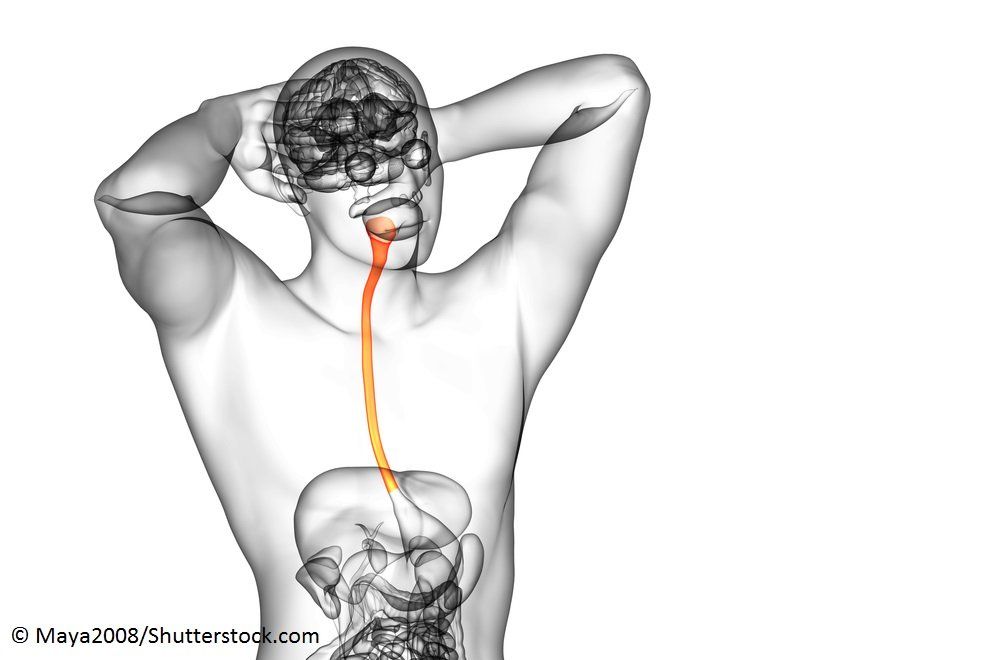NOTCH1 Mutational Status May Predict ICI Outcomes in Esophageal Cancer
According to comparative single-cell transcriptome analyses, NOTCH1 deficiency facilitated a more immunologically active microenvironment in ESCC tumors.
Despite patients with NOTCH1 status being associated with higher TMB, patients with NOTCH1 mutations experienced improved OS outcomes with tislelizumab regardless of TMB, with HRs of 0.34 and 0.38 in TMB-high and TMB-low groups, respectively.

Enhanced survival outcomes with tislelizumab (Tevimbra) vs chemotherapy in patients with esophageal squamous cell carcinoma (ESCC) may be predicated on NOTCH1 mutational status, according to results from the phase 3 RATIONALE-302 trial (NCT03430843) published in the Journal of Clinical Oncology.1
Results from the trial revealed that among patients with ESCC treated with tislelizumab, NOTCH1 mutations were strongly associated with overall survival (OS) benefit. The median OS among those with NOTCH1 mutations was 18.4 months with tislelizumab vs 5.3 months with investigator-chosen chemotherapy (ICC). Additionally, NOTCH1 mutational status conferred superior OS outcomes compared with patients with wild-type NOTCH1 status, with an HR of 0.35 (95% CI, 0.17-0.71) vs 0.81 (95% CI, 0.57-1.14) among respective patient groups (P = .0372).
Further data showed that the objective response rate (ORR) among patients with NOTCH1 mutations treated with tislelizumab was 33% vs 8% with ICC. In those with wild-type NOTCH1 status, the ORRs were 18% and 16%, respectively. Additionally, a progression-free survival (PFS) improvement trend was displayed for tislelizumab vs ICC in patients with NOTCH1 mutations (HR, 0.71; 95% CI, 0.37-1.37) but not those with wild-type NOTCH1 status (HR, 0.94; 95% CI, 0.66-1.34).
"Through comprehensive evaluation, NOTCH1 mutation was identified as a novel biomarker for predicting [immune checkpoint inhibitor] outcomes in ESCC,” lead author Zhihao Li, MD, of the Department of Gastrointestinal Oncology at Key Laboratory of Carcinogenesis and Translational Research at Peking University Cancer Hospital and Institute in Beijing, China, wrote with study coinvestigators in the publication .1 “Our data suggest that ESCC with inactivating NOTCH1 mutations harbors immune-activated microenvironments with higher IFN-I [interferon type I] gene signatures and lower immune-suppressive cell infiltration. Our findings provide conceptual evidence that NOTCH1 mutation or knockdown reshaped the [tumor microenvironment], suggesting that targeting the NOTCH pathway may be a relevant immunotherapeutic strategy for ESCC.”
In the phase 3 RATIONALE-302 trial, patients with advanced or metastatic ESCC who experienced disease progression following first-line systemic therapy were randomly assigned 1:1 to receive either 200 mg of intravenous tislelizumab every 3 weeks or ICC consisting of paclitaxel, docetaxel, or irinotecan. Paclitaxel was given on day 1 of 21-day cycles or every week, docetaxel was administered on day 1 of 21-day cycles, and patients received irinotecan on days 1 and 8 of 21-day cycles.2
The primary end point of the study was OS. Secondary end points included ORR, PFS, duration of response, health-related quality of life, and safety.
Additional data showed that there was no significant OS benefit with tislelizumab vs ICC in patients with NOTCH1 mutations based on tumor mutational burden (TMB; P = .5374). Additionally, despite patients with NOTCH1 status being associated with higher TMB (P = .0005), patients with NOTCH1 mutations experienced improved OS outcomes with tislelizumab regardless of TMB, with HRs of 0.34 (95% CI, 0.12-0.98) and 0.38 (95% CI, 0.14-1.02) in TMB-high and TMB-low groups, respectively.
Furthermore, no significant OS benefit was observed with tislelizumab vs ICC based on PD-L1 expression in those with NOTCH1 mutations. Although in the PD-L1–high subgroup, defined as a tumor area positivity score of 10% or more, patients with NOTCH1 mutations experienced an increased OS benefit with tislelizumab (HR, 0.31; 95% CI, 0.11-0.86), a similar trend was noted in the PD-L1–low subgroup with NOTCH1 mutations (HR, 0.51; 95% CI, 0.19-1.34).
Moreover, IFN-I–related genes were upregulated in tumors with NOTCH1 mutations, with top signatures enriched in tissues from this subgroup including IFN-I signature and interferon-stimulated gene signature. Downregulation of B cells and neutrophils was also identified by immunohistochemistry, showing decreased infiltration of these cell types in an independent ESCC cohort.
References
- Lu Z, Du W, Jiao X, et al. NOTCH1 mutation and survival analysis of tislelizumab in advanced or metastatic esophageal squamous cell carcinoma: a biomarker analysis from the randomized, phase III, RATIONALE-302 trial. J Clin Oncol. Published online April 3, 2025. doi:10.1200/JCO-24-01818
- A study of tislelizumab (BGB-A317) versus chemotherapy as second line treatment in participants with advanced esophageal squamous cell carcinoma. ClinicalTrials.gov. Updated October 26, 2024. Accessed April 24, 2025. https://tinyurl.com/5frymvef